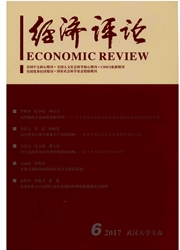

 中文摘要:
中文摘要:
本文运用非线性平滑转换模型对我国房地产价格与信贷规模的动态关系进行了研究,研究发现:2000年到2009年我国信贷规模的变动是房地产价格变动的格兰杰原因,信贷规模对房地产价格存在非线性影响,两者之间的关系适合使用LSTR1模型来拟合,当信贷规模的增长超过45.76%时,信贷规模的变动会对房地产价格产生影响,前一期和当期信贷规模增加1%,会分别导致当期房地产价格上涨0.3135%和0.0970%。研究结果的政策含义是只要房地产信贷规模控制在适当的范围,信贷规模的变动对于房地产价格的上涨就会有显著减弱,本文进一步指出在这种情况下,只有合理控制其他推高房地产价格上涨的因素才可能取得良好的调控效果。
 英文摘要:
英文摘要:
Employing Smooth Transition Regression model(STR) studied the relation ship between real eastate price and credit quota,this essay finds the change of credit quota is the reason of the change of real eastate price in China and the relaition is non-parameter,which can be expressed through the LSTR1 model.When the credit quota rate of increment surpasses 45.76%,the change of credit quota will affect the real estate price in a nonlinear way,and the elasticity of the real estate price to current period and the one lagged period credit quota is seperatly 0.0970% and 0.3135%.The conclusion that is it is important to keep the increasing speed of credit quota.Only then,the impetus of the loan scale's change to the real estate price will obviously be weaken and in this case the government must control other factors which affect the real estate price to gain good effects.
 同期刊论文项目
同期刊论文项目
 同项目期刊论文
同项目期刊论文
 期刊信息
期刊信息
